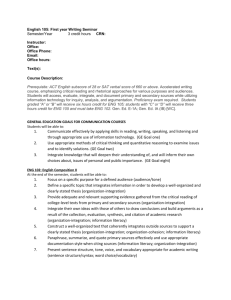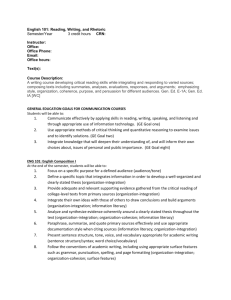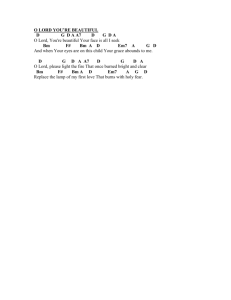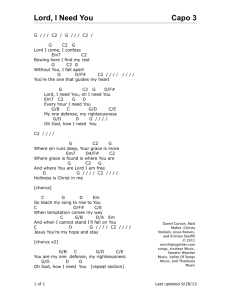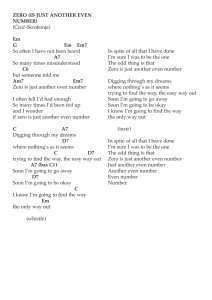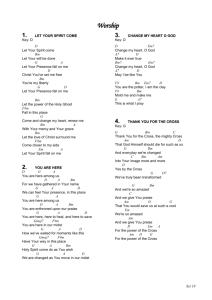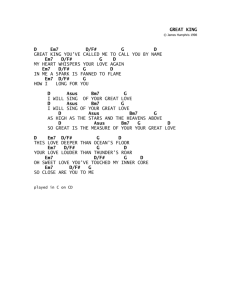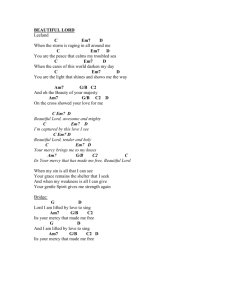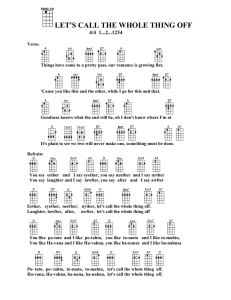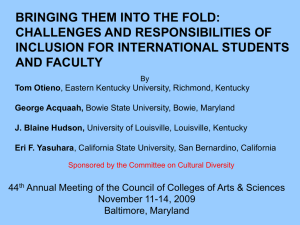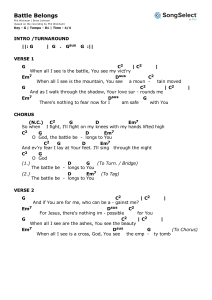ENG102
advertisement
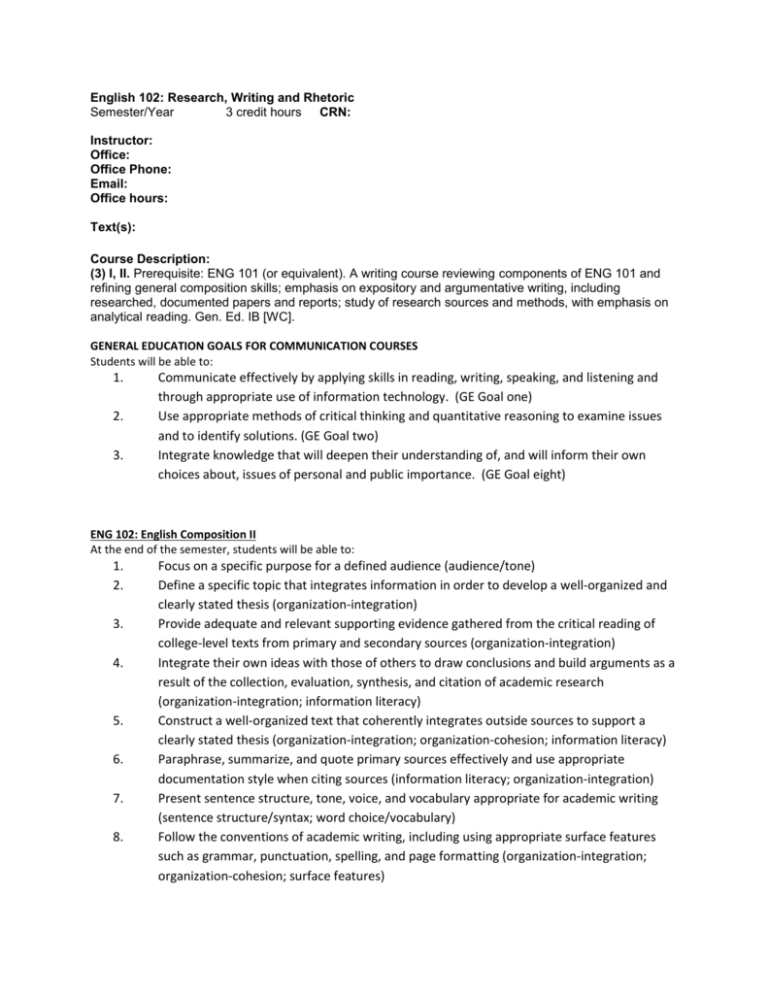
English 102: Research, Writing and Rhetoric Semester/Year 3 credit hours CRN: Instructor: Office: Office Phone: Email: Office hours: Text(s): Course Description: (3) I, II. Prerequisite: ENG 101 (or equivalent). A writing course reviewing components of ENG 101 and refining general composition skills; emphasis on expository and argumentative writing, including researched, documented papers and reports; study of research sources and methods, with emphasis on analytical reading. Gen. Ed. IB [WC]. GENERAL EDUCATION GOALS FOR COMMUNICATION COURSES Students will be able to: 1. 2. 3. Communicate effectively by applying skills in reading, writing, speaking, and listening and through appropriate use of information technology. (GE Goal one) Use appropriate methods of critical thinking and quantitative reasoning to examine issues and to identify solutions. (GE Goal two) Integrate knowledge that will deepen their understanding of, and will inform their own choices about, issues of personal and public importance. (GE Goal eight) ENG 102: English Composition II At the end of the semester, students will be able to: 1. 2. 3. 4. 5. 6. 7. 8. Focus on a specific purpose for a defined audience (audience/tone) Define a specific topic that integrates information in order to develop a well-organized and clearly stated thesis (organization-integration) Provide adequate and relevant supporting evidence gathered from the critical reading of college-level texts from primary and secondary sources (organization-integration) Integrate their own ideas with those of others to draw conclusions and build arguments as a result of the collection, evaluation, synthesis, and citation of academic research (organization-integration; information literacy) Construct a well-organized text that coherently integrates outside sources to support a clearly stated thesis (organization-integration; organization-cohesion; information literacy) Paraphrase, summarize, and quote primary sources effectively and use appropriate documentation style when citing sources (information literacy; organization-integration) Present sentence structure, tone, voice, and vocabulary appropriate for academic writing (sentence structure/syntax; word choice/vocabulary) Follow the conventions of academic writing, including using appropriate surface features such as grammar, punctuation, spelling, and page formatting (organization-integration; organization-cohesion; surface features) Students with Disabilities: A student with a “disability” may be an individual with a physical or mental impairment that substantially limits one or more major life activities such as learning, seeing or hearing. Additionally, pregnancy or a related medical condition that causes a similar substantial limitation may also be considered a disability under the ADA. If you are registered with the Office of Services for Individuals with Disabilities, please obtain your accommodation letters from the OSID and present them to the course instructor to discuss any academic accommodations you need. If you believe you need accommodation and are not registered with the OSID, please contact the office in the Whitlock Building Room 361 by email at disserv@eku.edu or by telephone at (859) 622-2933. Upon individual request, this syllabus can be made available in an alternative format. The last day to withdraw from this course is Evaluation Methods: Student Progress:. Academic Integrity Students are advised that EKU’s Academic Integrity policy will strictly be enforced in this course. The Academic Integrity policy is available at http://www.studentrights.eku.edu/academic-integritypolicy. Questions regarding the policy may be directed to the Office of Academic Integrity. Official E-mail: An official EKU e-mail is established for each registered student, each faculty member, and each staff member. All university communications sent via e-mail will be sent to this EKU e-mail address.
